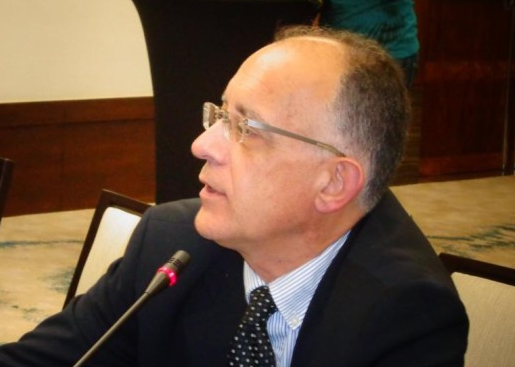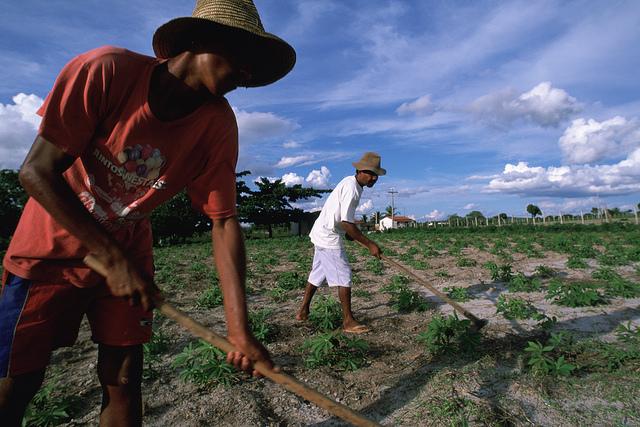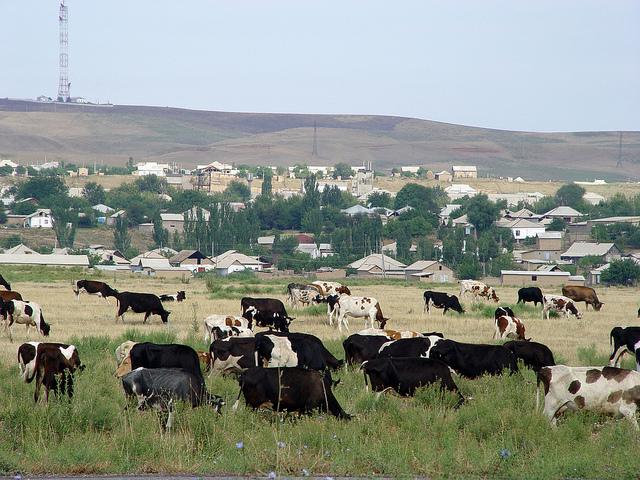The overall aim of the project is to upscale, refine and integrate climate risk insurance (CRI) solutions (launched in phase I) within a broader framework of disaster risk reduction (DRR) strategies and facilitate public safety nets and public-private insurance solutions for vulnerable people.
Latin America & the Caribbean
The core objective of the project is to design, implement and evaluate sustainable and holistic risk management solutions that increase resilience against natural disasters for vulnerable, low-income populations, and to enable and secure access to reinsurance to support the expansion of such solutions.
Date:
The core objective of the project is to provide a comprehensive risk management solution covering life, property, productive assets and agricultural crops to farmers.
The core objective of the project is to develop a microinsurance network (RedSol) that deals with the delivery of the product, organizational training, marketing, IT solutions, communication, education for consumers and operators, and applied research.
The core objective is of the project is to develop a roadmap (adopting an ICRM approach) to ensure that the existing and future energy generation, transmission, and distribution infrastructure is climate and disaster resilient.
09
Aug
The risk of drought is one of the biggest threats to livestock production in Uruguay. This is particularly relevant in livestock breeding bases, as the quality of the available pasture directly affects the quality of the livestock, and livestock fertility takes years to recover from bad droughts. In 2011 The World Bank Group (WBG) launched a feasibility study on developing an Index Insurance pilot in Uruguay, funded by the Government of Japan through the Global Index Insurance Facility (GIIF). The study quantified the total number of reproductive livestock units as 3.8 million countrywide
Content owner:
Innovative Index Insurance Solutions – Uruguay
In 2011 The World Bank Group launched a feasibility study on developing an Index Insurance pilot in Uruguay, funded by the Government of Japan through the Global Index Insurance Facility. The study quantified the total number of reproductive livestock units as 3.8 million countrywide, with 315 million USD total sum insured. The corresponding number of livestock producers was estimated at 38,000. The outputs of this technical and financial assistance has allowed the Government of Uruguay to start pilot testing an innovative Normalized Difference Vegetation Index (NDVI) index insurance to cover
Content owner:
Global Index Insurance Facility: Achievements Report (Phase 1: 2010-2015)
Topics:
Global Index Insurance Facility has produced a report that captures the Program’s achievements and on the progress of project implementation during phase one: 2010-2015. These achievements and lessons learned are the result of joint efforts, hard work and commitment with GIIF's implementing partners on the ground as well as generous support from the donors. Prepared collaboratively by the GIIF team across the globe, this report also offers a snapshot of past and future activities, including GIIF’s roles in capacity-building, outreach and communications efforts. Available in English and in

Published on:
Topics:
Country:
Panos Varangis, the World Bank Group's Global Lead for agricultural finance and agricultural insurance in the Finance and Markets Global Practice, was speaking at a World Bank event on index insurance in Santo Domingo, Dominican Republic's Diario Libre reports. To an audience, Mr. Varangis was presenting index insurance as an alternative financial instrument that can protect agricultural producers in Dominican Republic from hurricanes, tropical storms, and floods. The country loses an average of US $450 million a year since 1961 by events associated with these types of disasters. Dominican

Published on:
Poor farmers all over the world are increasingly falling prey to natural disasters, droughts and torrential rain largely due to climate change. But there is some good news as well. Thanks to new technologies, the widespread use of satellites, and more powerful computers, such events can largely be predicted in advance, thus making possible novel and more efficient insurance schemes for those at risk. In an interview with AFP, Gilles Galludec, Program Manager of the World Bank-run Global Index Insurance Facility discusses how index insurance schemes differ from traditional indemnity coverage in

